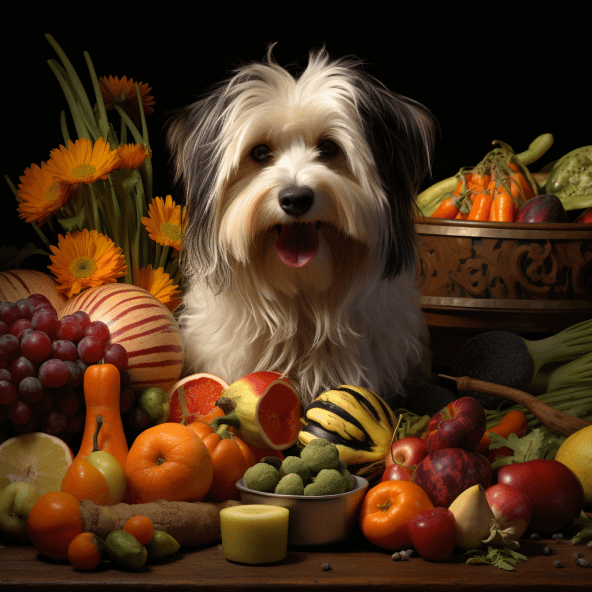What Vegetables Can Dogs Eat?
As a responsible pet parent, you’re likely always on the hunt for treats that aren’t just delicious, but nourishing too. But as you seek to switch up your furry friend’s diet, perhaps introducing some non-meat products, you might be wondering; can dogs enjoy a platter of vegetables just like us humans? If that sounds like you, then you’ve landed at the right place. This article, “What Vegetables Can Dogs Eat”, will be your go-to guide, comprehensively detailing a range of veggies that are safe and beneficial for your canine companions, and those that they should avoid.

The Value of Vegetables for Dogs
As a dog parent, you’re always considering what’s best for your furry friend, whether that be choosing the most comfortable bed, engaging toys, or the best doggie food. Just like you, dogs need a balanced and nutritious diet for optimal health. This brings us to the question: can dogs benefit from vegetables? You bet they can!
Nutritional benefits of vegetables for dogs
Much like humans, dogs can gain numerous nutritional benefits from vegetables. These low-calorie treats are packed full of vitamins, minerals, and fiber. Not only do they contribute to a balanced diet, but they can also aid in weight management, especially for dogs that require low fat and low protein treats.
Vegetable contributions to a balanced dog diet
Vegetables make excellent snack alternatives to the traditional store-bought, calorie-laden dog treats. Many vegetables are low in fat and calories, but high in fiber – a key ingredient in your dog’s diet. Fiber is crucial for maintaining digestive system health, including regular bowel movements.
Precautions in feeding vegetables to dogs
While vegetables offer substantial health benefits, it’s crucial not to go overboard. Remember, dogs, unlike humans, are primarily carnivores, with their main diet revolving around proteins. Therefore, vegetables should only make up a small portion of your dog’s diet – around 10 percent. Always introduce new foods gradually to your dog’s diet and watch for any adverse reactions.
Carrots
Who doesn’t love a good carrot crunch? As it turns out, your dog might too!
Nutritional content of carrots
Carrots, besides being a favorite for many dogs due to their sweet taste and enjoyable crunch, are bursting with nutrients. They’re packed with vitamins K and B6, fiber, and notably, vitamin A, delivered to the body through high levels of beta carotene.
Ways to safely feed carrots to dogs
Carrots can be safely offered to dogs both raw and cooked. Whether you grate them over your dog’s dinner or serve as a chewy treat, ensure they’re cut into bite-sized pieces to avoid choking hazards. Always supervise your dog while eating carrots, especially if they’re offered raw.
Possible health benefits of carrots for dogs
Beyond the enjoyable crunch, the beta carotene in carrots supports eye health, while fiber aids in digestion. Plus, that crunchy texture can help clean your dog’s teeth and promote good dental health.
Green Beans
Green beans make for another healthy vegetable option to consider for your pup’s dish.
Nutritional content of green beans
These versatile veggies are loaded with beneficial nutrients, including vitamins A, C, and K, alongside fiber and protein. Moreover, they’re low in calories, making them an excellent treat for overweight dogs.
Serving suggestions for green beans
Most dogs enjoy green beans raw, cooked, frozen, or thawed, so feel free to experiment with various preparations. However, keep the seasoning simple – dogs don’t need excess salt or spices.
Possible health benefits of green beans for dogs
Their high fiber content can help dogs feel full between meals, which can be a boon for those battling the bulge. Plus, their impressive vitamin profile can bolster your dog’s immune system.
Pumpkin
In the canine world, pumpkins are much more than Halloween decorations!
Nutritional content of pumpkin
Pumpkin is packed with fiber, as well as vitamin A, C, E, potassium, and iron. It’s also notably low in calories.
Serving suggestions for pumpkin
Pureed pumpkin (not pumpkin pie mix, which has spices and sugar) is often the go-to form for dogs. Alternatively, you can bake or steam fresh pumpkin and serve it to your dog.
Possible health benefits of pumpkin to dogs
Pumpkin can offer digestive support, thanks to its fiber content. It can assist dogs with constipation or diarrhea. Also, the rich concentration of vitamins can boost overall health.
Peas
That small size belies a nutritional punch. Peas are another veggie option for your dog’s menu.
Nutritional content of peas
Peas are a great source of vitamins A, K, and the B vitamins. They also provide plenty of fiber, along with some protein.
Safe ways to feed peas to dogs
Peas can be mixed into your dog’s regular food, given fresh, or even frozen as a refreshing treat on hot days. Avoid canned peas due to their high sodium content.
Possible health benefits of peas for dogs
Peas can provide dietary fiber to aid in digestion, as well as essential vitamins for overall health.
Cucumber
Your refreshing summer snack might also delight your dog.
Nutritional content of cucumber
Cucumbers are mainly water, but they also provide a decent amount of vitamins K, C, and B1, as well as potassium and magnesium.
How to safely feed cucumber to dogs
Cucumber slices make a convenient, no-mess treat, or you can mix them into your dog’s meal. Just be sure to remove any seeds and cut them into appropriate-sized pieces to prevent choking.
Possible health benefits of cucumber for dogs
Given their high water content, cucumbers can help hydrate your dog and are especially suitable for overweight dogs due to their low calorie and fat content.
Sweet Potato
A Thanksgiving favorite that your dog can enjoy year-round!
Nutritional content of sweet potato
Along with high amounts of fiber, sweet potatoes also pack a healthy dose of vitamins A, C, and B6, as well as potassium and calcium.
Serving suggestions for sweet potato
When serving sweet potatoes to dogs, always do so cooked and never raw. Raw sweet potatoes can be tough to digest for dogs. Moreover, skip the extra seasonings and butter.
Potential health benefits of sweet potatoes for dogs
The fiber in sweet potatoes can promote a healthy digestive system, while the vitamin A supports eye health.
Brussels sprouts
These mini cabbages are nutritious and can be an excellent vegetable for your dog.
Nutritional content of Brussels sprouts
Brussels sprouts are excellent sources of vitamins C and K, along with fiber and antioxidants.
Preparation steps for feeding Brussels sprouts to dogs
Always cook Brussels sprouts before feeding them to your dog, as raw sprouts can cause gas. Also, make sure they are adequately chopped to avoid choking.
Health benefits of Brussels sprouts for dogs
The high vitamin and fiber content in Brussels sprouts can aid your dog’s digestion and boost their immune system.
Spinach
Don’t let the rumors deter you; this leafy green can be a healthy treat for your dog in moderate amounts.
Nutritional content of spinach
Spinach is rich in vitamins A, B, C, and K, along with iron, antioxidants, beta carotene, and roughage.
How to safely feed spinach to dogs
Cook spinach well before feeding it to your dog, as raw spinach can be difficult for them to digest. Also, keep portions small, as too much spinach could lead to kidney issues due to its high oxalic acid content.
Some health benefits of spinach for dogs
Spinach can support dog’s cardiovascular health, immune system, and energy levels.
Vegetables to Avoid Feeding Dogs
While many vegetables are safe and beneficial for dogs, some can be potentially harmful.
Toxic vegetables for dogs
Some vegetables are toxic for dogs and should be strictly avoided, including onions, garlic, and rhubarb. These can cause harmful effects on a dog’s red blood cells, leading to anemia.
Vegetables that could cause digestive issues in dogs
While not necessarily toxic, some vegetables like raw potatoes and tomatoes or too much broccoli can cause digestive issues or lead to other health problems.
Preventing vegetable-related health risks
Always research whether a vegetable is safe for dogs before feeding it to them, even in small amounts. Introduce any new foods slowly and watch out for any adverse reactions. If in doubt, always consult your vet.
In conclusion, offering a variety of safe and properly prepared vegetables can be a healthy addition to your dog’s diet. However, always remember that they should not substitute for a balanced diet of dog-specific food that provides the essential proteins and other nutrients your dog needs. That’s what being a responsible dog parent is all about!






